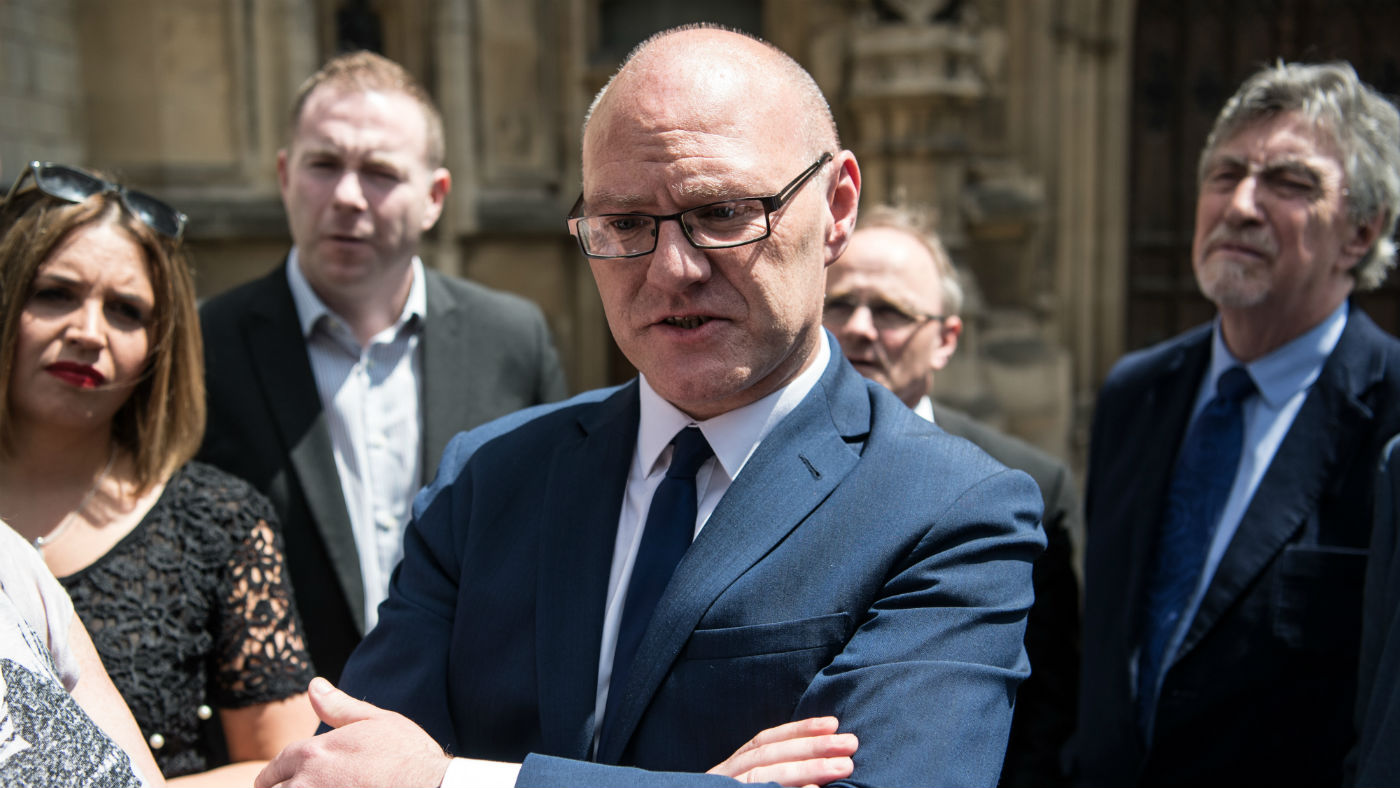Will Sinn Fein take up its Commons seats?
Irish party under pressure to drop century-old policy of abstention to help defeat Government on Brexit

A free daily email with the biggest news stories of the day – and the best features from TheWeek.com
You are now subscribed
Your newsletter sign-up was successful
Sinn Fein is under pressure to drop its century-old policy of abstention and take up its seven seats in the House of Commons to help defeat the Government on Brexit.
Irish Prime Minister Leo Varadkar said that, given the knife-edge votes looming in Westminster, Sinn Fein has the chance to “make things better for Ireland”. His comments were backed by Brendan Howlin, leader of the opposition Labour Party, who said it was time for the party to “step up to the plate”.
Despite being first elected to the House of Commons in 1917, Sinn Fein MPs have never taken up their seats. The party has always refused to accept Westminster’s right to govern Northern Ireland.
The Week
Escape your echo chamber. Get the facts behind the news, plus analysis from multiple perspectives.

Sign up for The Week's Free Newsletters
From our morning news briefing to a weekly Good News Newsletter, get the best of The Week delivered directly to your inbox.
From our morning news briefing to a weekly Good News Newsletter, get the best of The Week delivered directly to your inbox.
Given the importance of Brexit, not only to Ireland but to the Northern Ireland peace process, and the parliamentary arithmetic involved, “the party has come under growing pressure in the Republic to reverse its stance”, says The Times’s deputy political editor in Ireland, Jennifer Bray.
Fianna Fail Brexit spokesman Stephen Donnelly told the Irish Independent the combination of the failure to restore power-sharing in the North and Sinn Fein’s refusal to take its seats in Westminster “essentially means a hard-line unionist voice is heavily influencing the future of Northern Ireland”.
Were Sinn Fein to take up its seven seats and vote with the Opposition, the Government’s majority would be cut to four, even with the continuing support of the DUP.
“Under those circumstances the Government would almost certainly find it impossible to overturn rebel Tory amendments that would commit the UK to remaining in a customs union,” says The Times.
A free daily email with the biggest news stories of the day – and the best features from TheWeek.com
The fate of the post-Brexit Irish border has emerged as one of the most contentious issues in the negotiations.
Howlin said Jeremy Corbyn’s decision to back staying in a customs union was a “potential game changer for Ireland”. He added: “There is now a real possibility that the Brexit government could be defeated on this issue. The outcome of the historic vote could hinge on votes of currently absent Sinn Fein MPs.
“It is now time for Sinn Fein to step up to the plate and defend the interests of the island of Ireland.”
Following Labour’s policy shift on Monday, the EU turned the screw on Theresa May’s government, with European Parliament chief Brexit negotiator Guy Verhofstadt vowing to fight to ensure Northern Ireland remains subject to EU law after Brexit.
The Daily Telegraph says the latest intervention “heaped yet more pressure on [Theresa] May in a crunch week for the Prime Minister” and, were Sinn Fein to join the fray, it could be the final nail in her political coffin.
But a Sinn Fein spokesman reaffirmed the party’s long-standing policy of non-engagement. He said: “We are an abstentionist party, and we are mandated to abstain from Westminster by the people who vote for us.”
However, while the rhetoric remains the same, behind the scenes the party’s position could be softening. A new generation of leaders has replaced the former militant members who fought during the Troubles, and there is also a growing acknowledgment the party must do more to appeal to voters in the South, where it is looking to make big gains and even join government as part of a progressive coalition.
So “is it likely”, asks The Times’s Red Box? “Perhaps not. But it is an issue which keeps cabinet ministers awake at night. As one confided recently: ‘I keep thinking if Sinn Fein take their seats, we really are stuffed.’”